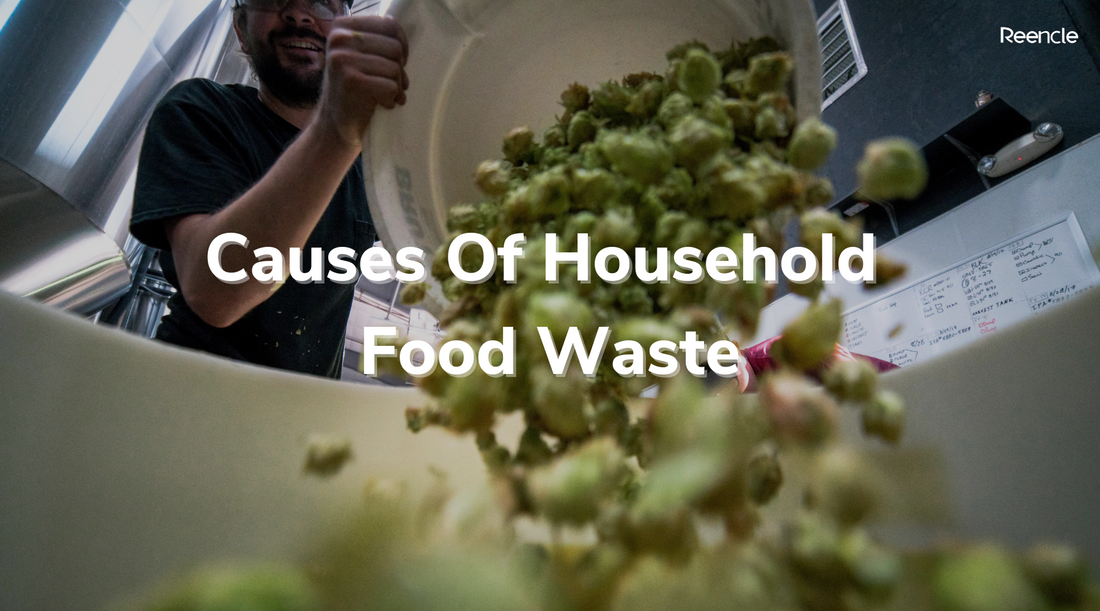The stark juxtaposition of hunger affecting nearly 820 million people globally, while a third of produced food is being wasted is jarring. It makes little sense that we have a large problem on both ends of this issue, which makes solving it that much more important. Given that inflation has been on the rise, it’s surprising that we still waste so much food daily in Malaysia. In 2021 alone, we threw out 4,081 tonnes of edible food - daily. That is an amount that could fill 1 ½ Olympic-sized swimming pools. All this food waste goes to landfills and releases harmful greenhouse gasses that further contribute to climate change. The carbon footprint of food waste results in a shocking 3.3 billion tonnes of greenhouse gas emissions each year.

While there’s not much we can do about the roles corporations play in climate change, there are definitely good reasons for us to contribute to reducing food waste in our daily lives. Knowing the negative impacts of our actions is important to bring some change to our routines. Keep reading to find out about what causes food waste, and hopefully you’ll be able to be more mindful about how these factors occur in your own life.

Confusing Labels
One of the main causes of food waste is confusing labels. On packaging, a variety of labels can be seen that mean different things. For example, some packaging labels say “best before”, others say “consume by”, and “expiry date”, among others. Standardizing labels is the way to go when it comes to reducing confusion among consumers.
To bring some clarity, the “best before” on labels don’t indicate expiry, but instead indicate that while the food is safe to eat after the stated date, it may not be at its best. For instance, its flavor and texture might not be as good as it would be before the date. Expiration dates on the other hand, tell consumers when a product is safe to consume whereby a product is no longer safe to ingest after the date shown. It’s important to be aware of these distinctions to avoid wasting food that is still edible.
Lack of Accessible Recycling and Food Donation Services
It’s probably fair to assume that most people don’t want to waste food. If given the chance, most of us would love to be able to donate our extra food or produce to those who need it. However, these intentions stay intentions without action to follow, since there’s a clear lack of accessible resources to donate food and recycle our excess. iProperty created this Complete List of Food Banks in Malaysia; we recommend giving it a read!
If you happen to over-purchase food or produce you can’t put to use, it’s worth giving to those who need it more. Take note of recycling centers and food banks near you so you have somewhere to send your extras! It’s also always good to form relationships with your neighbors as you never know what situations people may be in, and you could always give what you could do without, to those who could do with them.

Inadequate Planning
Have you ever bought groceries for the whole week (or worse, month), only to end up eating out almost every day - leaving your groceries to go bad and having to throw them away? Though it takes a while longer, it’s extremely important to plan your meals according to your schedule to avoid wasting food. Improper planning can lead to excess food that goes bad before you can make use of them. Without a shopping list (even a mental one), you’re bound to over-purchase and under-consume. Not to mention the rotting food that’ll inevitably end up in your fridge when you save it “for later” and forget about it.
In the future, try to keep a list of what you really need, and perhaps give meal planning a try! Though this might take a while to get used to, it’ll be worth it in the long run both for you and the planet.

Improper Storage
The longer you can keep your food fresh, the less likely you are to have to throw it out due to rotting or expiring. Food waste occurs easily when we don’t know how to store our food in ways that are specific to their requirements. In other words, it’s important to make sure that you’re storing your food according to its ingredients and type. Failing to store your food properly will result in it going bad quicker. For example, leaving your avocados refrigerated can make them last up to 5 days while maintaining their ripeness, but failing to do so will result in accelerated rotting. Apples also last up to 10 times longer (as long as six weeks!) when you keep them refrigerated.

Awareness is always the first step to making change. Food waste is on the rise, which makes our joined efforts in reducing food waste more important than ever before. The 17,000 tons of food waste Malaysians contribute to daily is a number that needs to reduce - and fast.
In many ways, food waste is an inevitable occurrence that we need real solutions for. If you'd like to repurpose your food waste into nutrient-rich compost, meet Reencle - a state-of-the-art indoor compost machine that fits into your household and lifestyle seamlessly. Sign up for our newsletter to receive an exclusive promo code to save RM400 on your pre-order now.

